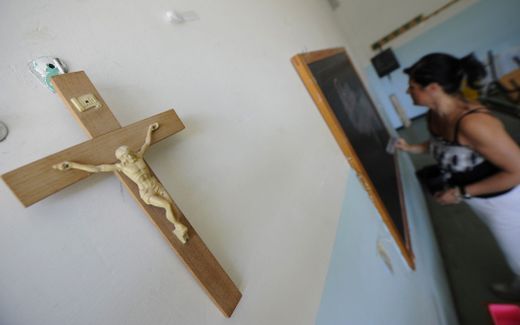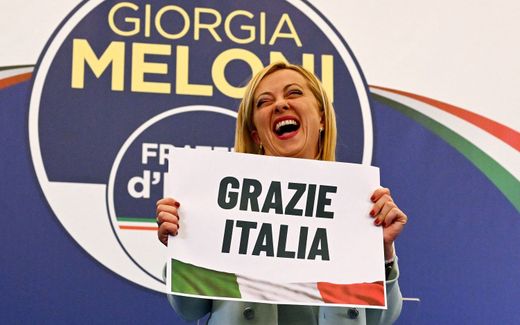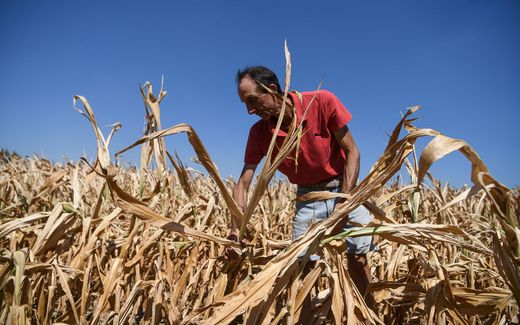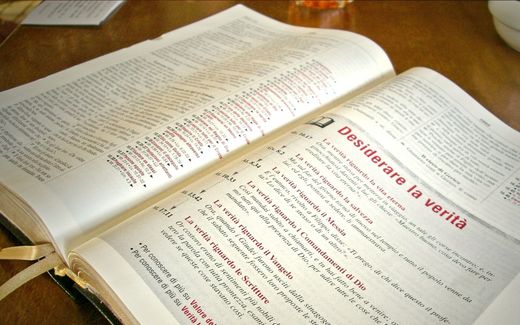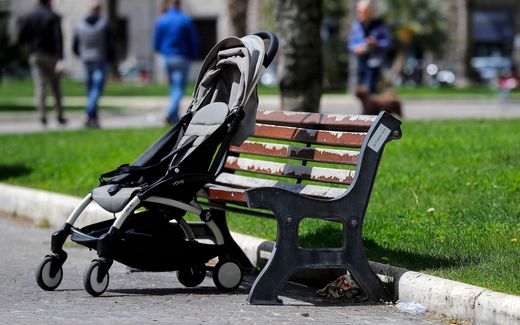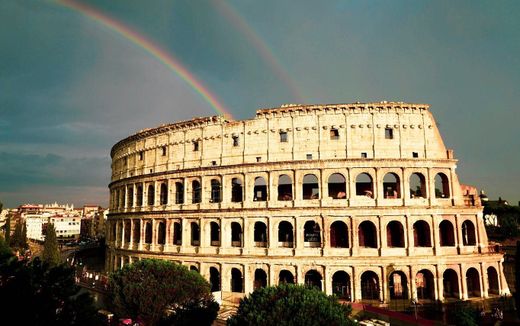Column from Italy: Migrants risk their lives at sea because staying home is worse
17-03-2023
Christian Life
Chiara Lamberti, CNE.news
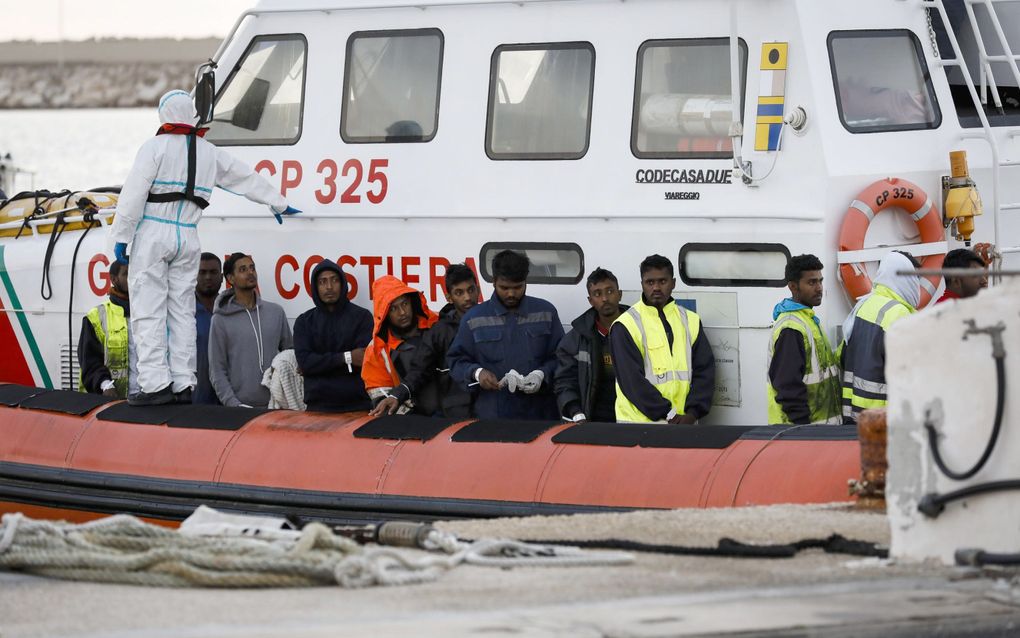
Migrants who survived a shipwreck off the Libyan coast, wait to disembark in the port of Pozzallo, Sicily Island, southern Italy, 13 March 2023. Photo EPA, Francesca Ruta
Christian Life
Once again, the beautiful Mediterranean Sea that washes Italy's shores has turned into a graveyard.
On Sunday, Feb. 26, at 4:35 a.m., someone calling for rescue warned that a boat off the coast of Calabria had capsized and that screams for help could be heard from many voices. Since then, many rescuers arrived, but more than 70 people drowned. Many are still in the hospital, and it is unknown how many are missing.
This is yet another massacre of migrants on the Italian coast.
Chiara Lamberti (1992) was born and raised in Naples, Italy. She studied Communication Sciences and has a master's degree in Information, Publishing and Journalism. She also has a degree in theology. She writes for the Italian Evangelical Alliance and contributes to the Protestant magazine Loci Communes. With her husband, daughter and son, she lives in Rome.
The fact
A small wooden boat with perhaps more than two hundred migrants had departed from the coast of Izmir, Turkey, a few days earlier. It crossed the so-called eastern route to Italy. On board mainly were Iranians, Afghans, and Pakistanis, many of them women and children. All survivors testified that they paid up to eight thousand euros to the alleged "smugglers" for the crossing. Italian law enforcement officers are searching for the smugglers to arrest them. So far, one has been found in Austria.
Italy is shocked by what happened and the controversy accompanying this story.
The controversy
Many are wondering why the migrants were not rescued sooner and why they were left for many hours in the rough sea.
Reconstructions of the story, in fact, revealed that as early as 11:05 p.m. Saturday, Frontex, the European Border and Coast Guard Agency, had spotted the boat. The agency reported only its presence, not the danger to the Italian Guardia di Finanza (Italy's financial police that deals with smuggling issues) and the coast guard. The Guardia di Finanza could not get to the boat with the migrants due to the weather conditions and the very rough sea. The guards did not intervene before the small boat collided with a rock and broke in two.
It is unclear why rescuers did not arrive sooner. It is unclear why no one on board had life jackets. It is unclear why no one took the responsibility to intervene before the boat broke in two, even though it was known that many more people were on board than the boat could hold.
Of course, this is the subject of an investigation opened by the Crotone (Calabria) Public Prosecutor's Office.
Debate
Politics immediately entered the controversy, and the debate in Italy is coming to a head from government and opposition.
Indeed, the issue of migrants in Italy is at the centre of political and ideological debate. The right-wing, which is now in government, has always made defending borders its battle.
After the shipwreck, the left accuses the government of generating a climate that prevented rescue.
The government rejects all accusations but continues to say that we need to fight against illegal departures, stop the smugglers, and prevent unauthorized entry.
The tragedy
While politicians discuss blame, the sea returns more victims, dozens of whom are minors. Meanwhile, people arrive in Italy from all over Europe. Many who had departed on that boat were waiting to be reunited with family, as Italy is often a stopover to join family members in other European countries.
This is not the first massacre of migrants in Italy. According to some research, over the last ten years, more than 26,000 migrants died in the Mediterranean Sea. In the first three months of 2023 alone, there are already more than 200 victims. Those who die are often migrants who braved the central route. The one that leads from the coasts of North Africa to southern Italy, a perilous route.
Gravity
At the same time, the routes and nationalities of migrants are indicative of the gravity of the situations they are coming from, that they would be willing to risk their lives rather than remain in their countries of origin.
Nearly two-thirds of migrants depart from sub-Saharan countries where most of the population lives on less than $10 a day, as those from Bangladesh and Pakistan do. Six out of ten migrants, however, leave countries with authoritarian regimes with a lack of civil, political and religious freedoms that make life difficult or impossible in the case of dissent.
As Christians, we grieve for the dozens of victims that migration produces. We must commit ourselves to a sound concept of welcoming and combating the injustices that drive people to risk their lives. In addition, we must pray that European countries can work together to find joint solutions.
Related Articles

